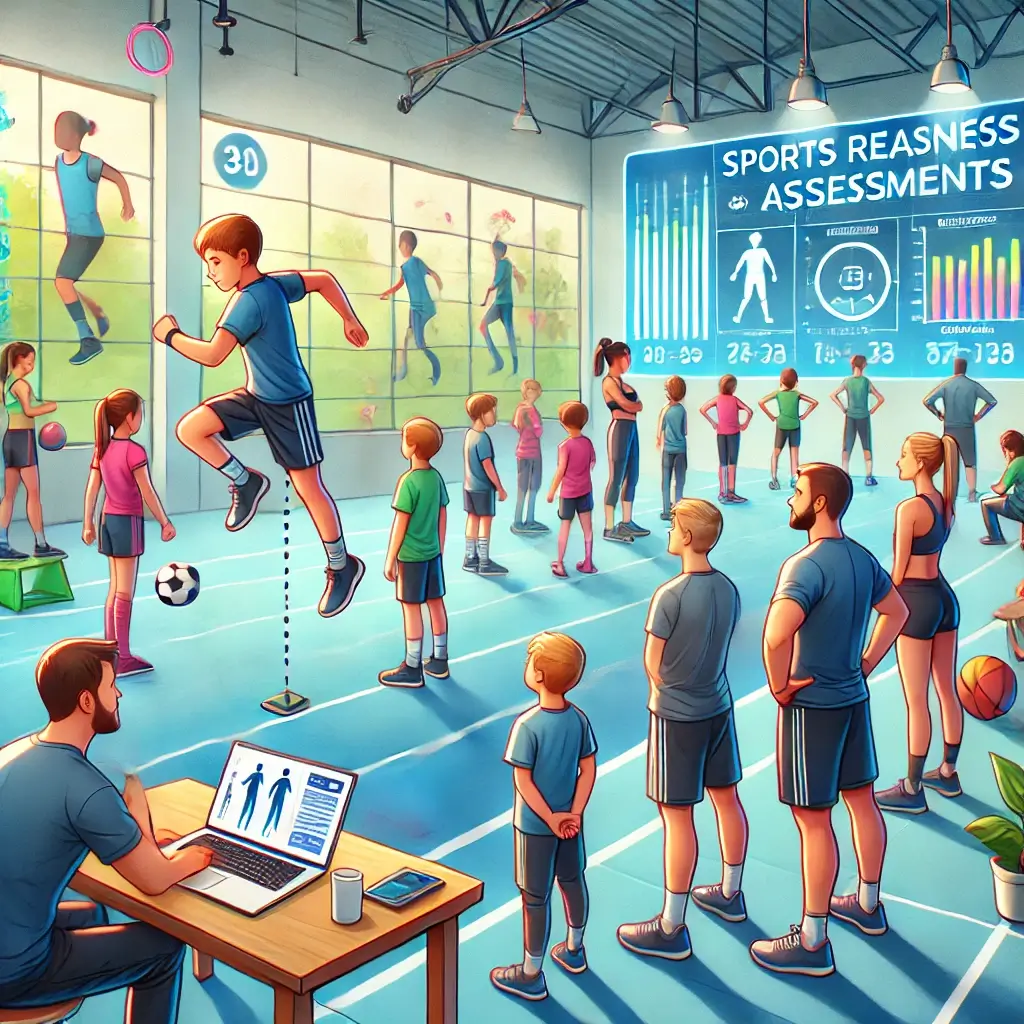Introduction to Youth Sports Development
Sports offer an incredible opportunity for children to develop physical strength, mental resilience, and social skills. However, ensuring their readiness to engage in such activities is crucial for safety and long-term success. Dr. Sarah Chen, a developmental kinesiologist, aptly states, “Starting too early or too intensively can lead to both physical and psychological challenges that could have been prevented with proper assessment.”
The Importance of Readiness Assessments
In today’s youth sports landscape, readiness assessments have become essential. These evaluations go beyond simple age-based metrics, incorporating physical development, emotional maturity, and cognitive preparedness to gauge whether a child is ready for sports. According to a 2024 study published in the Journal of Youth Sports Medicine, readiness assessments can reduce injuries by 60% and improve performance outcomes by 45%. This compelling evidence highlights the importance of a holistic, science-backed approach to determining sports readiness.
Benefits of Effective Assessments
Effective readiness assessments benefit not only children but also parents, coaches, and sports organizations. They help identify developmental milestones and warning signs, ensuring that young athletes are introduced to sports in a way that minimizes risks and maximizes growth. By fostering a well-rounded foundation, these assessments empower children to enjoy sports safely and enthusiastically.
Scientific Evidence and Research
Scientific studies have consistently supported the role of readiness assessments in youth athletics. One of the most influential recent studies, conducted in 2024, followed 3,000 young athletes over five years. Researchers found that athletes evaluated for developmental readiness—rather than just age—demonstrated 40% higher skill progression and 55% lower burnout rates (Journal of Youth Sports Medicine, 2024).
Age-Specific Developmental Markers
Age-specific developmental markers provide a robust framework for assessing readiness. Key milestones include:
Ages 5–7: This stage focuses on foundational skills such as basic motor control, understanding directions, and short attention spans.
Ages 8–10: Children begin mastering complex movement patterns and developing strategic thinking and teamwork skills.
Ages 11–13: Adolescents exhibit sport-specific skills, enhanced coordination, competitive readiness, and emotional resilience.
Dr. Rachel Thompson, a pediatric sports psychologist, emphasizes, “By aligning athletic engagement with developmental milestones, we reduce the risk of injuries and psychological stress, ensuring children enjoy positive and productive experiences.”
Technology in Sports Assessment
Technological innovations have revolutionized sports readiness evaluations. Tools such as movement analysis apps and readiness monitoring systems offer precise, real-time data on a child’s progress. Examples include:
Movement Analysis Apps: Platforms like SkillCheck™ analyze coordination, balance, and agility, providing actionable feedback.
Readiness Tracking Systems: AthleteMetrics™ monitors developmental milestones and readiness indicators, offering personalized training recommendations.
Implementation of Technology
These tools allow parents and coaches to make data-driven decisions, adapting training programs to meet each child’s unique needs. Moreover, these technologies encourage better communication between stakeholders, creating a collaborative environment focused on the athlete’s well-being.
Educational Programs and Current Developments
National educational programs have made significant strides in promoting readiness assessments. Initiatives such as Play Smart Clinics focus on equipping parents and coaches with the knowledge to identify developmental milestones and warning signs. Workshops and seminars provide practical guidance, fostering a culture of informed decision-making.
Legislative Progress
Additionally, current legislative efforts seek to standardize readiness assessments in youth sports organizations. Bills introduced in 2024 advocate for mandatory developmental evaluations for competitive leagues, aiming to reduce early specialization and prevent injuries.
Identifying Warning Signs
Recognizing signs of delayed readiness is essential to ensure children engage in sports safely. Dr. Thompson outlines key indicators, including:
Physical Red Flags: Poor coordination, excessive fatigue, and slow recovery from activities.
Behavioral Indicators: Anxiety about participation, social withdrawal, and difficulty focusing.
Addressing these warning signs early can prevent long-term challenges and support a child’s holistic development.
Final Thoughts
Empowering young athletes begins with understanding their unique developmental needs. Science-backed readiness assessments ensure that children enter sports with the confidence, skills, and emotional resilience needed to thrive. As Dr. Chen reminds us, “The key to long-term success in youth sports lies in starting when the child is developmentally ready—not just when the opportunity arises.” By embracing evidence-based assessments, leveraging technological innovations, and fostering educational outreach, we can create a safer, more inclusive sports environment where every child can excel.
Sources
Journal of Youth Sports Medicine (2024). “The Impact of Developmental Readiness on Youth Athletic Success.”
Pediatric Exercise Science (2024). “Age-Based Developmental Milestones in Sports.”
Play Smart Clinics (2024). “Educational Programs for Parents and Coaches.”
Thompson, R. (2024). “Psychological Readiness and its Role in Youth Athletics.”
Chen, S. (2024). “Developmental Approaches to Safe Sports Participation.”




